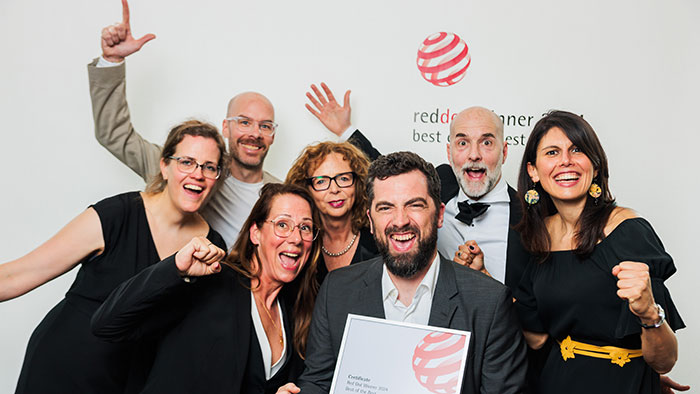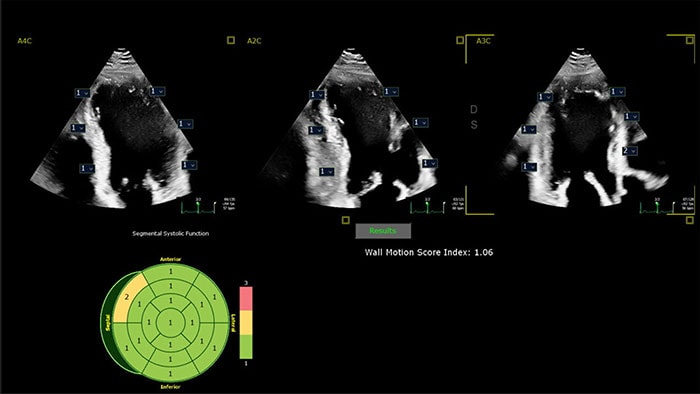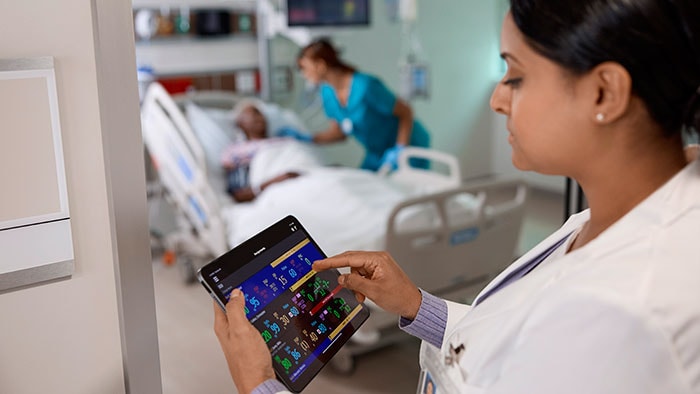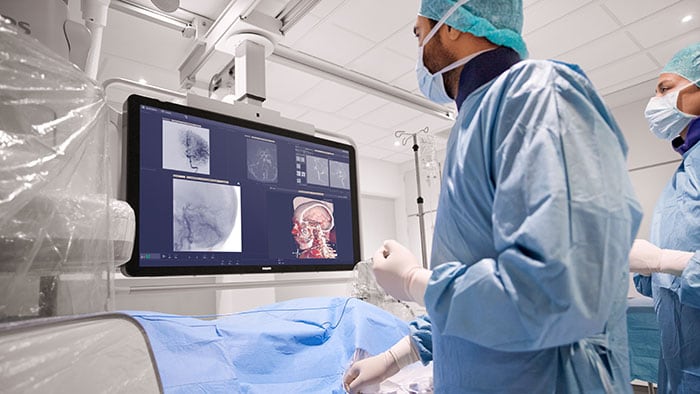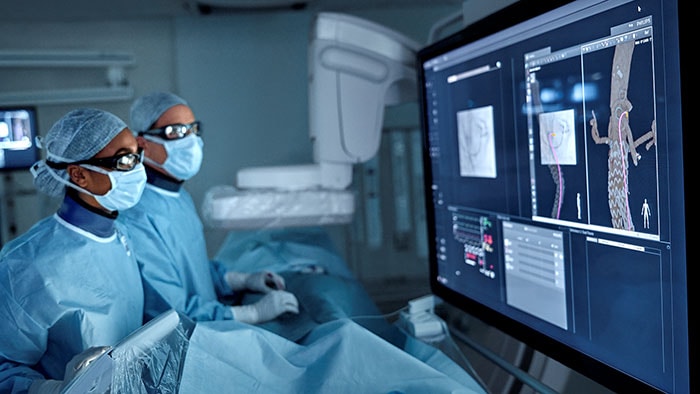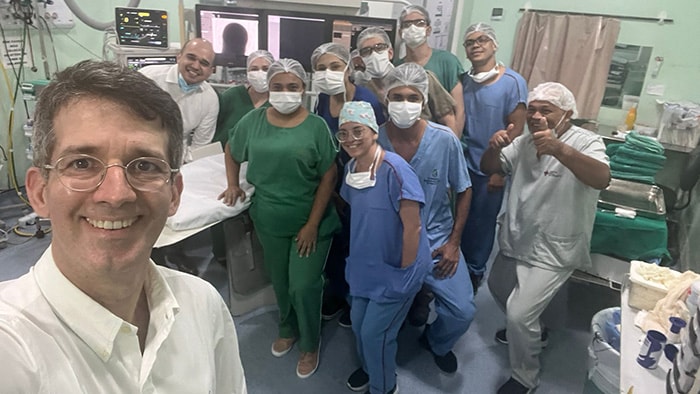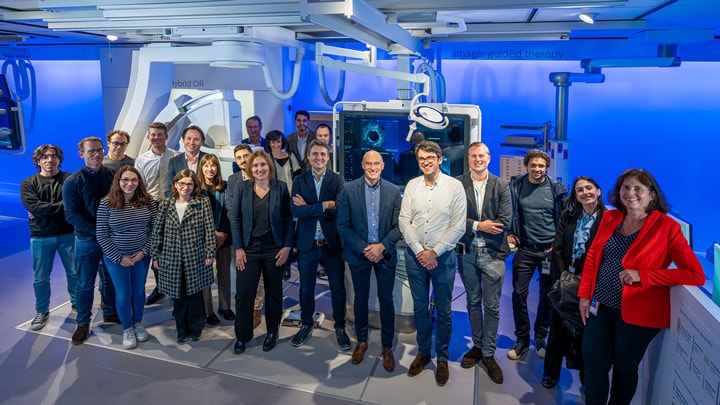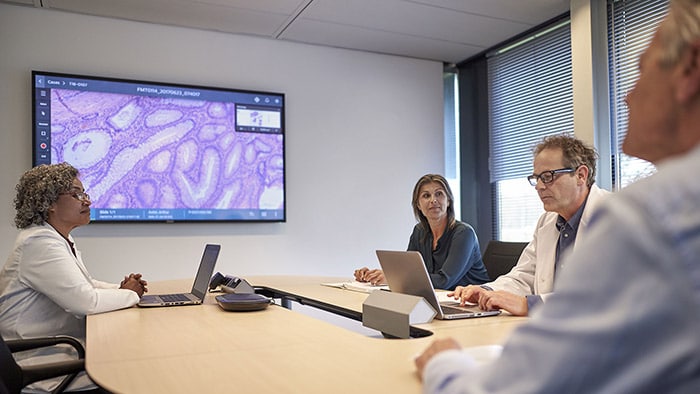This post was originally published on the World Economic Forum website.
The severe global shortage of chips is disrupting the manufacturing of life-saving medical devices and systems. If we fail to take immediate action to address this shortage, it will impact patients in all corners of the world.
Chips, also known as semiconductors, are often referred to as the brains powering modern technologies. These small wonders are essential components in vital medical equipment and systems, such as ultrasound devices that examine an unborn baby’s development, defibrillators that respond to sudden cardiac arrest, and patient monitors that assess a patient’s vital signs in the intensive care unit (ICU). In the ICU, patients’ conditions can change quickly, so having access to real-time data allows care teams to ensure that signs of deterioration are not missed. By not taking action to address chip supply issues in the medical technology industry, we could see a serious shortage of these devices and many others.
Given the severe chip shortage, I urge semiconductor manufacturers and suppliers to prioritize the allocation of chips for vital medical devices.
Frans van Houten
CEO Royal Philips
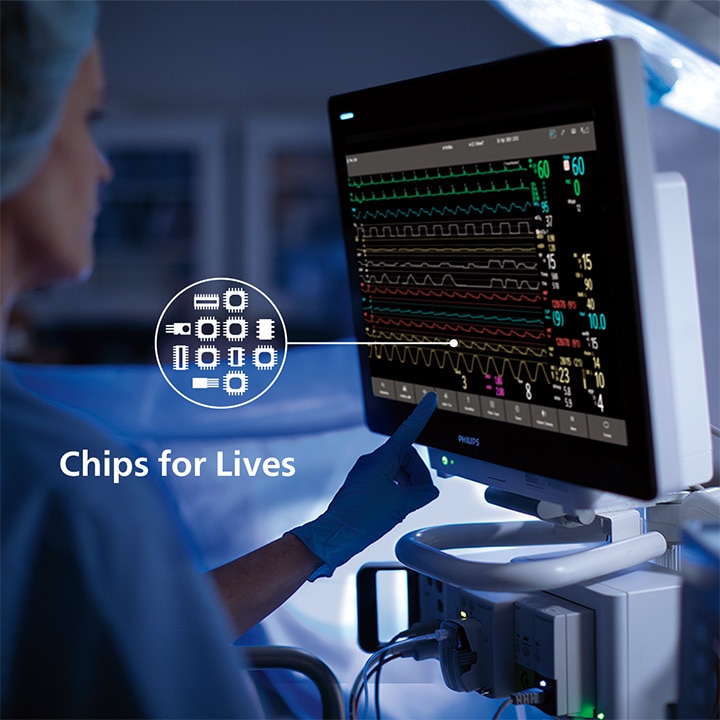
The digital transformation of healthcare
The chip shortage comes at a time when healthcare providers are under increasing pressure, caused by, for example, aging populations and the rise in chronic disease. In addition, there are now more patients and an increasing shortage of staff. Many of us have experienced the effects of this pressure, such as long waiting times and the impact on staff struggling to manage workloads. While the digital transformation of healthcare can help ease the pressure and address the many challenges – improving and strengthening health systems to benefit patients, caregivers, and entire communities – it is largely dependent on technologies and systems that need chips. Subsequently, we must avoid a situation where the chip shortage derails this transformation.
The COVID-19 pandemic exposed and even exacerbated many of the issues in healthcare. At the same time, it also showed how new technologies help shape more efficient and effective care delivery. For example, advancements in virtual care and smart technologies enable care teams to monitor and treat patients beyond hospital walls. Such technological developments can help shape a future in healthcare where we can focus more on home care and prevention, where a diagnosis is more precise and treatment more personalized and predictive. We want to ensure that everyone can access the treatment they need, when and where they need it, and that care providers can focus on caring for patients rather than growing administrative tasks. This is the promise offered by new technologies and systems.
Prioritizing the medical technology industry
Philips has had ongoing discussions with major chipmakers about driving actions to meet demands, and working with governments and others, the medical technology industry has certainly not been standing still in trying to secure more chips. However, despite substantial efforts to ensure supply continuity, the challenges are only mounting. In some cases, lead times have ballooned to more than 52 weeks.
At the same time, more people are seeking much-needed medical care that was delayed or postponed due to the pandemic. It could take years for many healthcare systems to address huge patient backlogs, and as they prioritize doing so, it will only increase the demand for new medical equipment and, consequently, more chips. In addition, the global growth in chip demand is projected to almost double between 2021 to 2028, causing severe chip shortages for numerous industries.
Unfortunately, the medical technology industry competes with the automotive, industrial, and consumer industries for a limited supply of critical chips. Due to the urgent need for these in the medical technology industry, representing just 1% of the total supply, we call for chip allocations to be prioritized to a level that enables the industry to meet the medical-device manufacturing demands of today.

Addressing the chip shortages
We need to act now to secure semiconductors to maintain a sustainable allocation of chips for life-saving medical devices and systems and continue to improve the delivery of care. Philips is working closely with the broader medical technology industry to increase transparency in market supply and emphasize the necessity to access these chips now. In addition, the medical technology industry associations are working with legislators, government authorities, and the broader industry to find a long-term solution to ensure a steady supply of semiconductor chips.
Underlining the crucial nature of the chip shortage, the European Commission has issued a recommendation to Member States to address these shortages immediately and engage with chip manufacturers to prioritize critical sectors such as healthcare. The United States government has also recognized the impact of the chip shortage on patients and is in dialogue with the industry on prioritizing the medical technology sector.
Given the severe chip shortage, I urge semiconductor manufacturers and suppliers to prioritize the allocation of chips for vital medical devices. The aim must be to ensure better availability of chips for an industry that is critical to maintaining the health and well-being of populations worldwide – both now and in the years ahead.
Share on social media
Topics
Contact

Steve Klink
Philips Global Press Office Tel: +31 6 10888824
You are about to visit a Philips global content page
Continue


